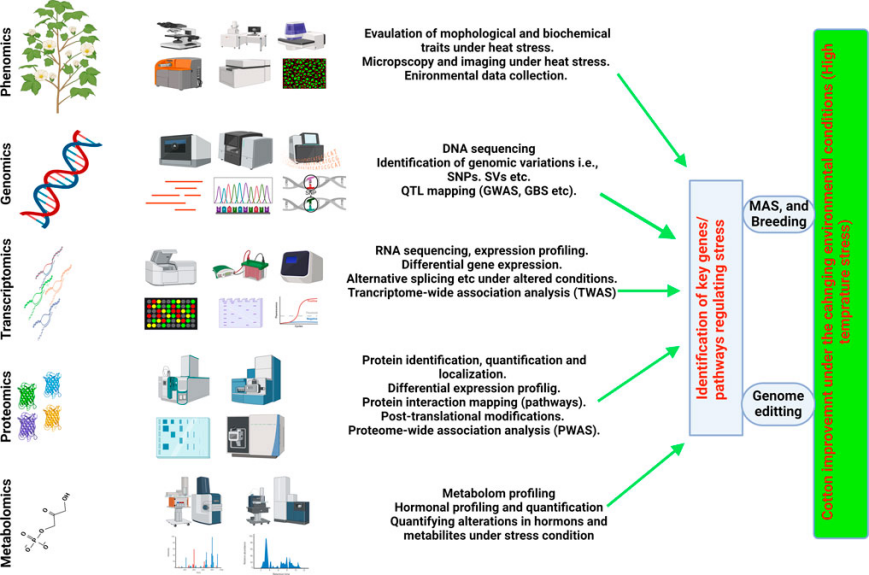- Location : Home» Newsroom
Unraveling the genetic and molecular basis of heat stress in cotton
Human activities and climate change have resulted in frequent and intense weather fluctuations, leading to diverse abiotic stresses on crops which hampers greatly their metabolic activities. Heat stress, a prevalent abiotic factor, significantly influences cotton plant biological activities resulting in reducing yield and production. We must deepen our understanding of how plants respond to heat stress across various dimensions, encompassing genes, RNAs, proteins, metabolites for effective cotton breeding. Multi-omics methods, primarily genomics, transcriptomics, proteomics, metabolomics, and phenomics, proves instrumental in studying cotton's responses to abiotic stresses. Integrating genomics, transcriptomics, proteomics, and metabolomic is imperative for our better understanding regarding genetics and molecular basis of heat tolerance in cotton. The current review explores fundamental omics techniques, covering genomics, transcriptomics, proteomics, and metabolomics, to highlight the progress made in cotton omics research.
The author(s) declare that inancial support was received for the research, authorship, and/or publication of this article. Authors are grateful to The National Key R&D Program of China (2021YFE0101200), Pakistan Science Foundation, PSF/CRP/18th Protocol (07), National Natural Science Foundation of China (32171994, 32072023, 32272090), Public Sector Development Program under the Ministry of Planning, Development & Special Initiatives (PSDP Project No. 829) and International Foundation for Science, Sweden, and COMSTECH, Islamabad (IFS-C-6500-1) for provision of funds.
